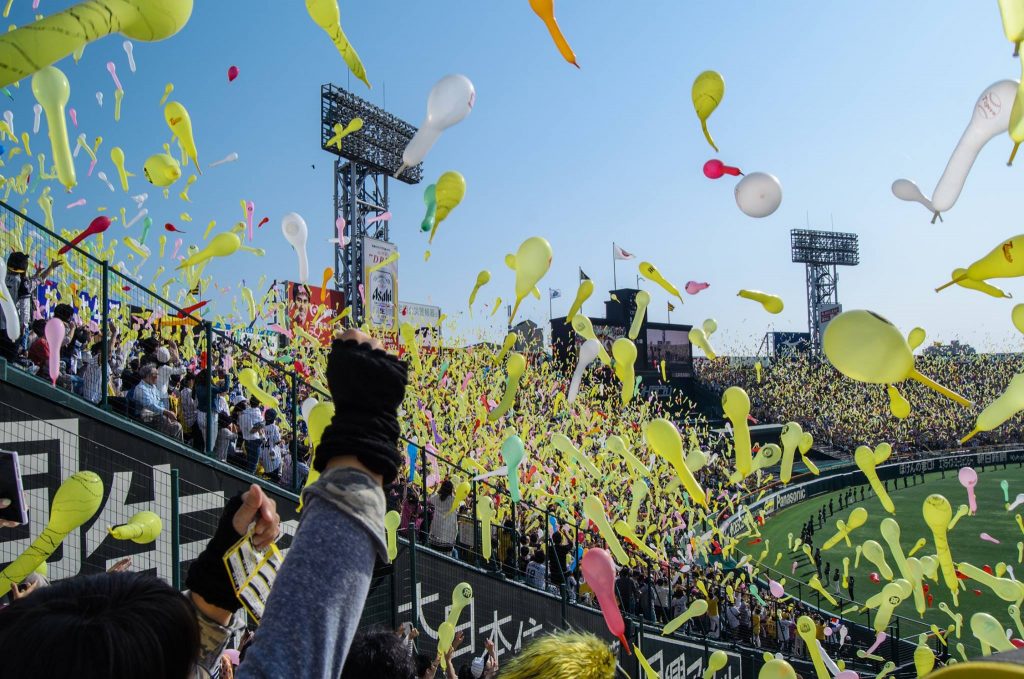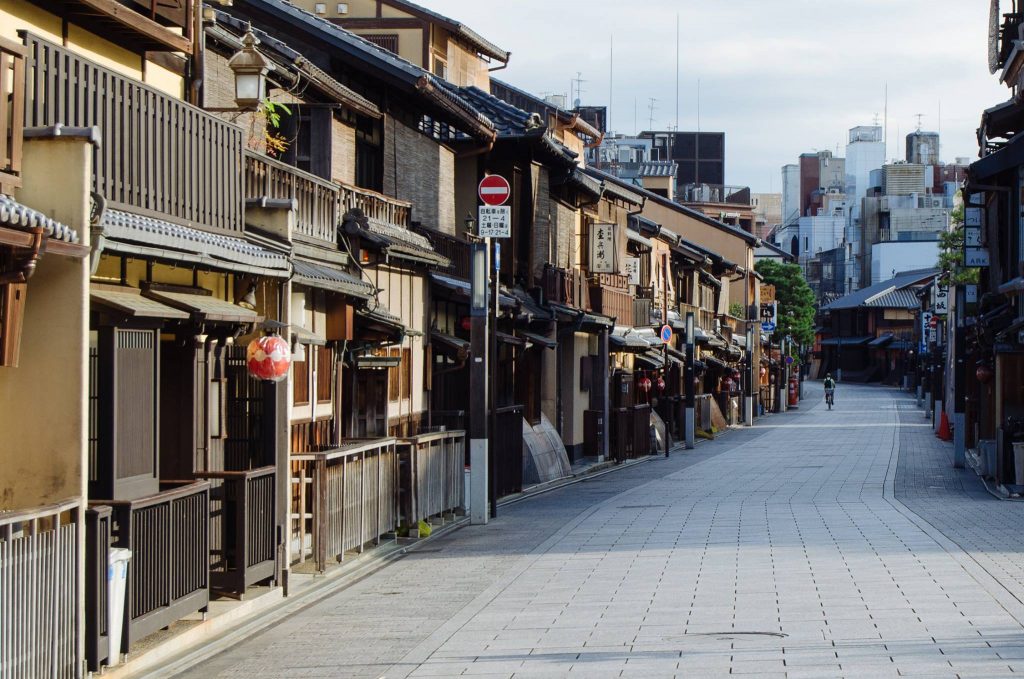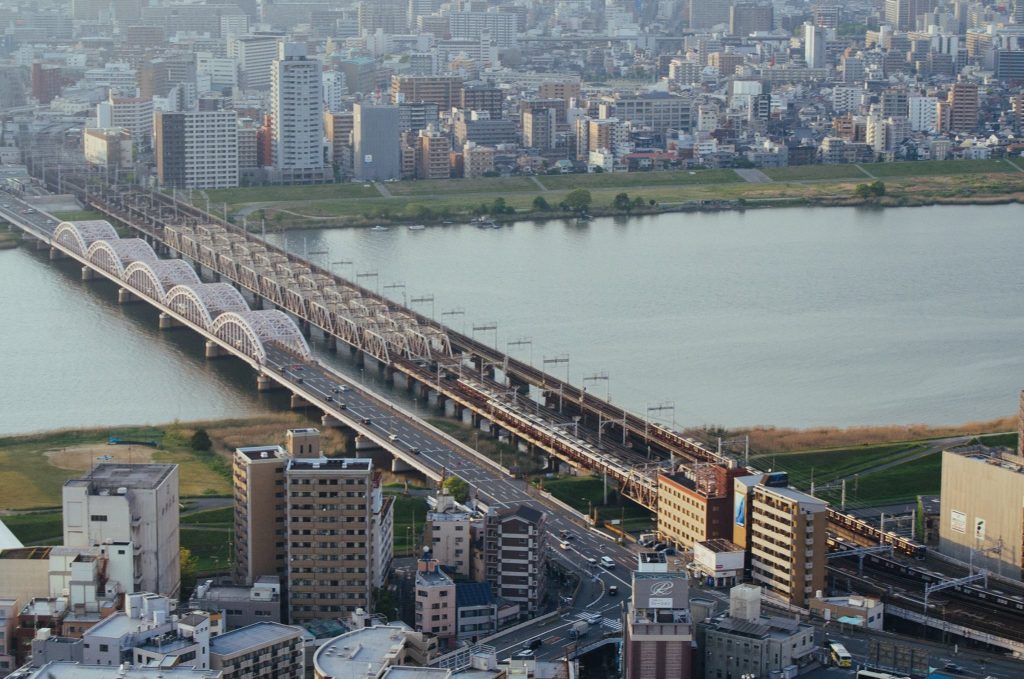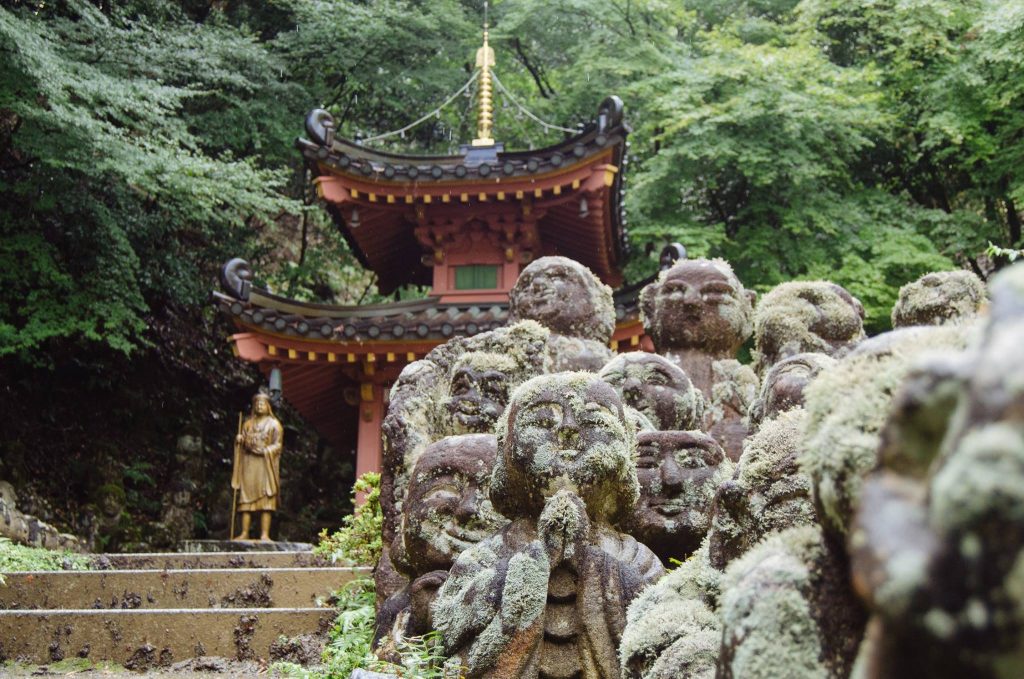Recently returned from a 1-semester exchange to Osaka University in Japan, William Strausser, a 4th year Asian Area Studies major, agreed to share his experience as it unfolded. This is the final part, of a three-part interview, chronicling his exchange abroad. The first interview was conducted after his first week in Japan, the second, halfway through his exchange and the third, after he returned.


Can you bring us up-to-date on your last couple of weeks? How was the last leg of your exchange?
August was absolutely crazy! For the first half of the month, I was just spending time around Osaka. I visited some matsuri (festivals), saw some fireworks, and explored some nearby cities, but the highlight had to be seeing some games of the Koshien tournament. Koshien is the national high school baseball tournament which takes place every year at Osaka’s Koshien stadium in August. It is a huge deal in Japan – even bigger than the Olympics – so being able to see it in person was a special experience.


Balloon toss at Koshien Stadium. Photo taken by William Strausser.
For the latter half of August, I spent two weeks travelling with my parents. We visited Tokyo, Kyoto, and Osaka, walking nearly 10 miles (16 km) per day. Showing them around the country was a great experience. It helped me realize just how comfortable I had become navigating Japan compared to when I was fresh off the plane.
How were exams? Were they any easier or harder than the ones at UBC?
They were much easier than at UBC. I don’t mean to put down Osaka University – especially given the fact that I was merely in the English-language exchange program – but my courses this summer made me appreciate the depth and rigor of the Asian Studies program at UBC. Our department is pretty incredible, and I feel very fortunate to be able to earn my degree here.
Your Japanese must have improved a lot. What have you accomplished using Japanese that you are most proud of? Do you have any plans on how to maintain your new language skills now that you are back?
It’s hard to come up with any tangible accomplishments I’ve made in my Japanese ability, but it has certainly improved quite a bit since before I left. Though it’s still difficult for me to have any meaningful conversations with people, I am able to understand and say significantly more than I could before. Rather than having to carefully think through every word that comes out of my mouth, I’ve been able to build up some “muscle memory” with a number of phrases.
I’m not yet sure exactly what the best way to maintain my language will be now that I’m back. I definitely plan to watch more Japanese films; I’ve found that watching movies with subtitles is an immense help now that my listening ability has improved. I also hope to make use of the programs available at UBC to meet native speakers.


Kyoto’s Gion district at dawn. Photo taken by William Strausser.
While on exchange, do you feel like you have grown and/or changed at all?
Absolutely. I would be amazed if anyone can go through an experience like a foreign exchange and come out of it unchanged. I’m not sure how to quantify or describe how it’s changed me, but it certainly has.
Perhaps more than anything else, my exchange has taught me how to manage my expectations for things and remain open-minded. I don’t mean this in the sense of lowering expectations, but rather not having them at all. If you expect either nothing or everything to happen, you can never be caught off guard. I know that’s an incredibly vague statement to make, but hopefully people can make some sense out of it.
What has been your greatest experience?
I’ve been asked this question by a lot of people since returning to Canada, but I’m still not really sure how to answer it. Overall, I think it’s impossible for me to choose any single experience as being my greatest.
Above all else, what I tried to appreciate the most while I was there was the Japanese lifestyle. It was the sum of all the little things which make up life in urban Japan – the trains, convenience stores, kindness and politeness of the people, efficiency and ease of eating, density of services – that I find myself missing the most now that I’ve left.


Osaka’s Yodo River viewed from Umeda Sky Building. Photo taken by William Strausser.
Anything you regret not doing?
There are a few, but one immediately comes to mind.
The films of Akira Kurosawa are the reason I ever became interested in Japan in the first place, so I really wanted to pay a visit to the site of the original rashōmon gate – from which Rashōmon, arguably his most important film, takes its name. The gate no longer stands, but there is now a marker where it once stood that is in the middle of a playground in southern Kyoto. While I made several visits to Kyoto, I was never able to make a stop here since it’s fairly out of the way from all the other notable sites in the city.
Would you recommend other students go study abroad? Do you have any tips? Do you think you will return to Japan any time soon?
Absolutely! I think it’s worthwhile for any undergraduate to study abroad, but especially so for Asian Studies majors. I’ve come out of the experience with a completely fresh view of Japan and a context into which I can place everything I learn through my coursework.
As far as tips go, I think that the most important one I can give is to go into your exchange with as few expectations as possible. I met a lot of other students in my program who were dissatisfied for one reason or another because they thought Japan would be something that it wasn’t. I think a lot of them could have had a much better time if they hadn’t been trying to impose their own preconceived notions onto a culture that is often poorly understood in the west.
As far as returning to Japan goes, I’m currently hoping to return after I graduate. If all goes according to plan, I’ll be able to stay in the country for a few years and teach English before returning to North America for my Masters.


Stone rakan statues at Otagi Nenbutsu-ji, Kyoto. Photo taken by William Strausser.


